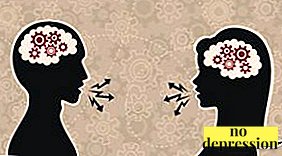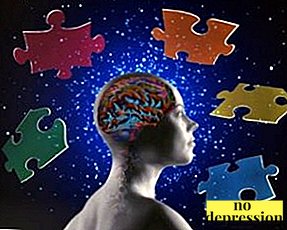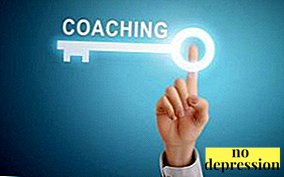Cognitive brain function - what is it? Speaking of cognitive science, it should be noted that this relatively young direction in science and the date of his birth is conditionally considered 1956
Cognitive psychology reflects the view of a person, like a computer, which at that time appeared and began to spread.
In short, the person represents whole information system which processes information through many different ways (by cognition).
Conscious thinking, being one of the ways not considered a major cognition. In addition, there are such important as images, emotions, attention, memory, imagination and many others.
Explanation of the term

Cognitive functions of the brain - functions that allow a person to exercise cognition of information.
Thanks to them, a person receives images, ideas, assessment of the world, people, himself and many other things.
These features include attention, visual-spatial perception, memory, understanding, thinking, executive functions (planning actions in accordance with the goal, changing the reaction, etc.).
Simply put, it is the ability of the brain, through which a person obtains knowledge and skills.
Mental processes - what applies to them?
All mental processes which psychologists managed to model, called cognitive. That is, these processes are amenable to logic and understanding, having an algorithm for processing information.
The processes that could not be modeled were called affective. These include an emotional-sensual attitude to everything.
Definition of concepts
Activity

Activities in cognitive psychology are brain capacity perform the following functions: attention, memory, language, visual-spatial perception and executive functions.
As a result of this activity, a person comes to understand something.
He begins to have an idea about the objects that enters the worldview system person
Examples: search for common elements in different languages; proof of mathematical regularity, theorem; writing an essay.
General psychology. Cognitive processes: speech - in this video:
Thinking
Thinking is one of the information processing tools for solving many problems. It is a personal phenomenontherefore, there are many types of thinking: critical, flexible, masculine, vigorous, arbitrary and, for example, on the contrary uncritical, feminine, lazy, involuntary, inflexible.
Thinking is mainly engaged only in processing the flow of information (thoughts, images, pictures, sounds).
If a person analyzes information, solves mental problems, compares data and determines the particular, the general, cause and effect, process and result, then his thinking is considered to be quite meaningful.
Examples: reading this text; any work; any activity and perception of information.
General psychology. Cognitive functions: thinking - in this video:
Communication

Communication is, in short, first of all. contacts between people.
It is a whole process, which includes establishing contact, then its development. Communication is a product of the needs of people in each other, joint activities.
In the framework of cognitive psychology, communication is important to us, because during it happens exchange of information, its knowledge. We find out information about the interlocutor, we get answers to questions.
Examples: training lesson; Scientific Conference; press conference.
Memory
Memory is the ability of the brain capture, store and reproduce necessary information. If we consider memory as a broader concept, then the process of forgetting also applies to it and is an important part of it.
The peculiarity of memory lies in the fact that its source of development is not inside, but outside, outside.
Like other mental processes, memory formed gradually. A child in the first days of life distinguishes mother from others, in the future his memory becomes more and more and he remembers the other people and things around him.
Another feature of memory is its variability. Despite the fact that the past is immutable, the memories can be distorted over the years more and more.

There are many types of memory.
Eye memory - visual; muscle memory - motor; long-term and short-term memory; positive and negative memory; memory of the past and memory of the future; internal and external memory and many other types. One of the most important types of memory is your own personal experience.
Examples: exam; driving skills; singing songs.
Flexibility
Flexibility in cognitive understanding means brain capacity switch from thought to thoughtthinking about several thoughts at the same time. Thanks to this, a person adapts to change, which plays a big role in learning and solving complex problems.
Examples: unexpected change in business schedule; change in taste and style; tests for an astronaut.
Control
Cognitive control is a combination of mental processes. regulation of behavior. It is considered one of the perfect mechanisms in the human psyche. Through control, a person builds relationships with other people and the environment according to the needs of the individual.
Examples: fight; dispute; bargaining.
Potential

Potential is called set of all available means and opportunities.
Personality potential is characterized by internal and external indicators.
TO internal indicators relates mental health, interests, intelligence, emotional abilities.
External indicators are based on internal ones, the development of which determines the full potential. External indicators include responsibility, culture, personal freedom, independence.
Examples: the presence of etiquette; outstanding music school performance; writing a thesis.
Tips to improve the cognitive functions of the brain in this video:
Opportunities, skills and abilities of the person - what include?
Cognitive (cognitive) abilities (capabilities, skills, abilities) of a person (in addition to the above) include:
 Short term memory - preservation in a short time of all incoming information.
Short term memory - preservation in a short time of all incoming information.- Focused attention - the ability of the brain to focus on something.
- Spatial perception - the ability to assess the state of things in space and link them relative to each other.
In addition to these abilities, there are many others (hand-eye coordination, inhibition, assessment, verbal abilities, etc.).
The cognitive skills acquired in childhood determine the ability to read, count, write, abstract and logical thinking.
These include imitation, study of objects, understanding of cause and effect, the ratio of objects, matching by similarity, naming, and then the ability to read, write and count.
What factors contribute to their decrease and increase?
Negative lifestyle, constant stress, physical overstrain, unhealthy diet, reduced blood circulation and oxygen supply, due to aging, a number of nervous diseases, contribute to a decrease in cognitive abilities.
Enhance cognitive abilities physical exercises (aerobic exercises, strength exercises, dances), nutrition (water, vitamins, chocolate, milk, etc.), daily routine (sleep, workplace), training (creativity, foreign languages, oral speech, positive thinking), rest (games, meditation), relationships (sex, laughter, intercourse).
You can learn about the effects on cognitive decline from the video:
What is testing for?

Cognitive abilities can be measured by a series of tests.
We need them for determine the level of development of aspects of intelligence and psychomotor functions, ensuring performance in specific areas of activity. For each of them there is a separate test.
For example, to determine the level of logical abilities give math problems, tasks for analogies, for determining the sequence, for solving problems.
IQ tests they allow you to measure the ability to analyze, solve problems, reason, cope with a complex situation, perceive the relationship of things.
But tests of this kind, according to psychologists, measure the total intellectual potential.
For example, the attention distribution and multitasking test gives an idea of both the overall efficiency of working with several tasks at the same time, and the performance of each individual task. Test is useful for people whose activities require a constant distribution of attention between simple tasks (secretary).
Cognitive psychology views the human psyche as system of cognitive operations. It allows convenient viewing of a person as a computer and is on the path of combining a multitude of studies within a single concept.
Test cognitive abilities:

 Short term memory - preservation in a short time of all incoming information.
Short term memory - preservation in a short time of all incoming information.

